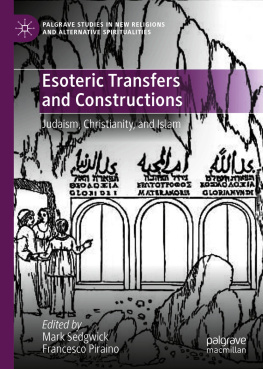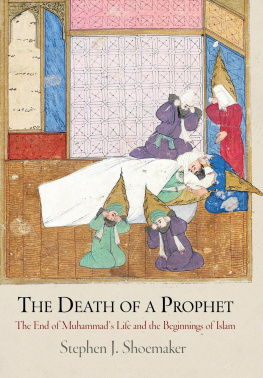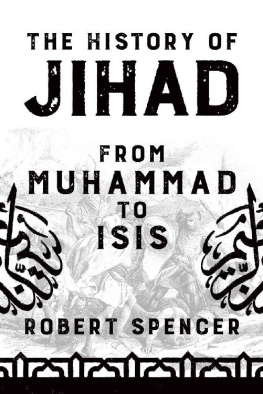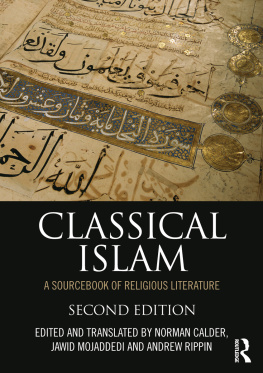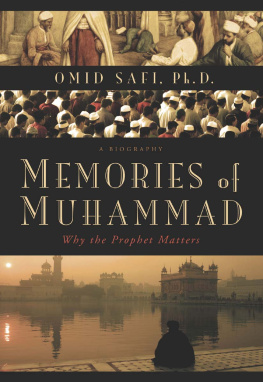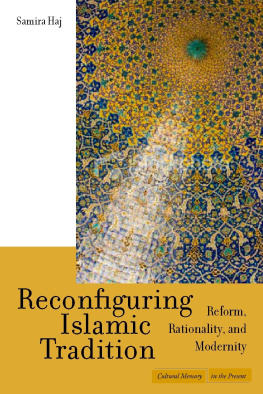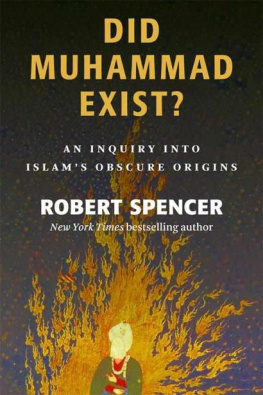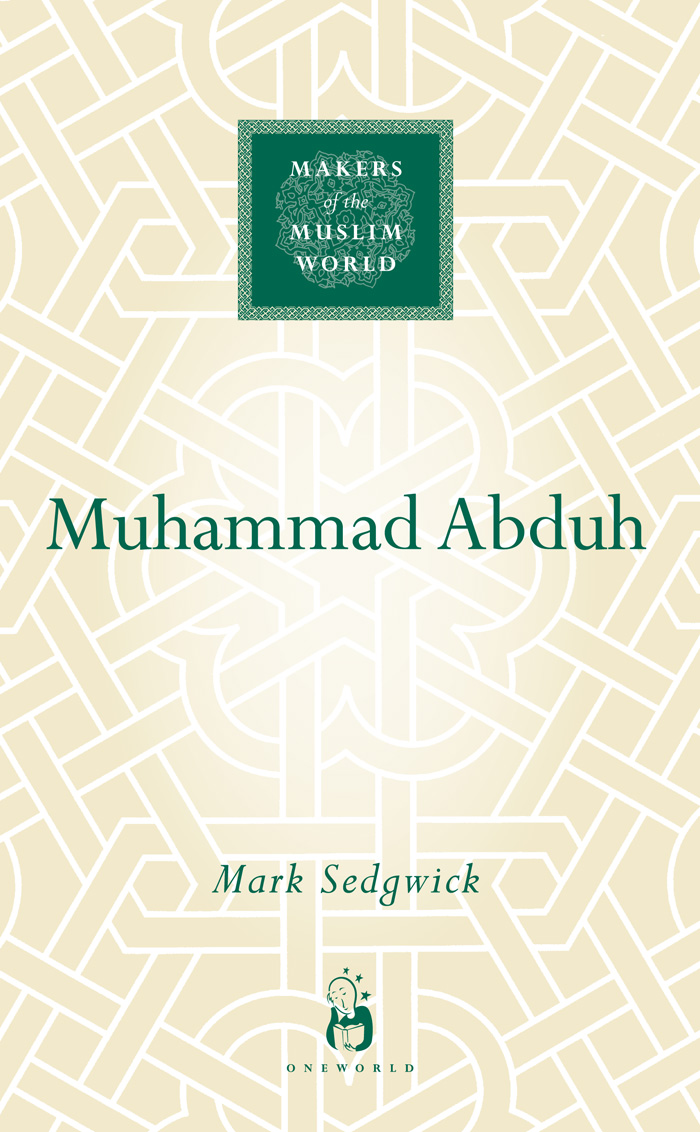
Muhammad Abduh
SELECTION OF TITLES IN THE MAKERS OF THE MUSLIM WORLD SERIES
Series editor: Patricia Crone,
Institute for Advanced Study, Princeton
Abd al-Ghani al-Nabulusi, Samer Akkach
Abd al-Malik, Chase F. Robinson
Abd al-Rahman III, Maribel Fierro
Abu Nuwas, Philip Kennedy
Ahmad al-Mansur, Mercedes Garca-Arenal
Ahmad ibn Hanbal, Christopher Melchert
Ahmad Riza Khan Barelwi, Usha Sanyal
Akbar, Andr Wink
Al-Mamun, Michael Cooperson
Al-Mutanabbi, Margaret Larkin
Amir Khusraw, Sunil Sharma
Ashraf Ali Thanawi, Muhammad Qasim Zaman
Chinggis Khan, Michal Biran
El Hajj Beshir Agha, Jane Hathaway
Fazlallah Astarabadi and the Hurufis, Shazad Bashir
Ghazali, Eric Ormsby
Husain Ahmad Madani, Barbara Metcalf
Ibn Arabi, William C. Chittick
Ibn Fudi, Ahmad Dallal
Ikhwan al-Safa, Godefroid de Callatay
Karim Khan Z and, John R. Perry
Mehmed Ali, Khaled Fahmy
Mu awiya ibn abi Sufyan, R. Stephen Humphreys
Nasser, Joel Gordon
Sadi, Homa Katouzian
Shaykh Mufid, Tamima Bayhom-Daou
Usama ibn Munqidh, Paul M. Cobb
For current information and details of other books in the
series, please visit www.oneworld-publications.com

Muhammad Abduh
MARK SEDGWICK

MUHAMMAD ABDUH
Published by Oneworld Publications 2010
This ebook edition published in 2013
Copyright Mark Sedgwick 2010
All rights reserved
Copyright under Berne Convention
A CIP record for this title is available from the British Library
ISBN 9781851684328
eISBN 9781780742137
Typeset by Jayvee, Trivandrum, India
Oneworld Publications
10 Bloomsbury Road
London WC1B 3SR
England
USA: 38 Greene Street, 4th Floor, New York, NY 10013, USA
www.oneworld-publications.com
Stay up to date with the latest books,
special offers, and exclusive content from
Oneworld with our monthly newsletter
Sign up on our website
www.oneworld-publications.com
For Zahra
CONTENTS
PREFACE
M uhammad Abduh (18491905), Mufti of the Egyptian Realm, is one of the most famous figures in recent Islam. In Egypt, he is now generally remembered as a great scholar and a patriot, a great renewer of Islam, one of those who awakened the nation though the details of this greatness have grown somewhat fuzzy with time. Among scholars, in the Muslim world and the West, he is known as Islams leading modernist. For some, his modernism consisted in creating a synthesis of Islam and modern thought; for others, it consisted in the bridge he built between the old world and the new. Some see him as having revived true Islam, and some see him as having proposed an alternative to true Islam. One question that this book attempts to answer, then, is quite what his modernism consisted in. Another question is where his modernism came from, and a final question is what happened to it after his death.
Muhammad Abduh was born into an Egypt that was an autonomous province of the ancient Ottoman Empire. He participated in a failed attempt at revolution, and died in an Egypt under British occupation. Politically, he lived through extraordinarily eventful times, and politics occupied him throughout his life, often more than Islam. Muhammad Abduh was, as a result of his initial education, a religious figure a member of the ulema. He acquired this status almost by default, since at the time of his birth formal education in Egypt was almost exclusively religious. His appointment as Mufti made him one of the most senior three or four religious figures in the Muslim world, but his earlier career might equally have led to him becoming a government minister, a newspaper editor, or a university president or a political prisoner, given that he was never afraid of risk and confrontation, and lived in a world where both were often dangerous. He did, in fact, spend some time editing a newspaper, and some time in prison.
Muhammad Abduh was one of the first Arabic-speaking Muslims to experience the West at first hand. Although he grew up in a purely Egyptian environment, he spent time in France and other European countries, learned French, and read deeply in nineteenth-century European social and political thought. Although he always remained Egyptian rather than European, he knew European ways well enough for his relationship with the very imperial British representative in Egypt, Lord Cromer, to become a real friendship. Although he remained a believing Muslim, he also took his Freemasonry very seriously. He certainly bridged two very different worlds, and tried to show others how this might be done. One part of his modernism, then, was to prefer a marriage of civilizations to a clash of civilizations.
Given this, it is strange that Muhammad Abduhs successor is commonly seen as Rashid Rida, that Rashid Ridas successor is commonly seen as Hasan al-Banna, the creator of the Muslim Brotherhood, and that the Muslim Brotherhood is seen as the distant origin of al-Qaeda. This is one of the paradoxes that this book explores.
This book builds on the research that has been done on Muhammad Abduh by many other scholars over the years. Its main contribution, I hope, will be in presenting a coherent picture of Muhammad Abduh. Many of those who have worked on Muhammad Abduh in recent years have done so from the perspective of some other issue that concerned them, and no full biography has been published by a Western scholar since 1933. As a result, it has sometimes been hard to judge various hypotheses against the big picture, which is what I have attempted to do while writing this book. When I have discarded a hypothesis as being too inconsistent with the big picture, I have generally not referred to it, given both limitations of space and the policy of this series, which calls for clarity. The specialist will, I hope, recognize which hypotheses I have discarded, and be able to read between the lines to see why.
In common with other volumes in this series, this book has no source notes. Suggestions for further reading, however, will be found at the end of the book, as will a bibliography giving my main sources. For those who are interested, further information on sources is available online at www.abduh.info. This website will also carry corrections of errors in the pages that follow (there will inevitably be some errors, for which I apologize in advance), such additional material as becomes available, a few images, and additional suggestions for further reading. Use of technical Arabic terms has been kept to an absolute minimum, but even so some have had to be used, and these are listed in a glossary.
I would like to thank the many students at the American University in Cairo (AUC) who took with me classes and seminars in which Muhammad Abduh was discussed, for the questions, objections, and suggestions that helped me refine my own understanding of Muhammad Abduh, and Dina Hamdy, who helped me research later views of Muhammad Abduh in Egypt. The 1933 biography of Muhammad Abduh was written by a scholar working at AUC, so it is appropriate that most of this book was written while I was also working at AUC. I would also like to thank two scholars who I have never met, but whose work was of great use: Mohamed Haddad and Indira Falk Gesink, who generously allowed me to make use of her unpublished PhD thesis. My thanks are likewise due to Patricia Crone, for her comments some years ago on the paper in which I first approached some of the issues that underlie this book, as well as for suggesting that I write it. Finally, I would like to thank two scholars who I know well, Elisabeth Sartain and Jakob Skovgaard-Petersen, for many fruitful discussions, and also for their comments on the manuscript of this book. In some cases, of course, disagreements remain.


